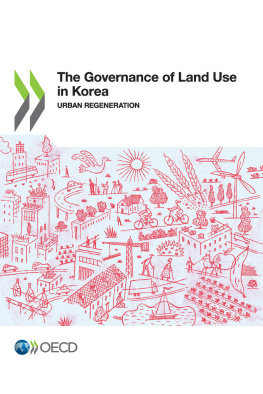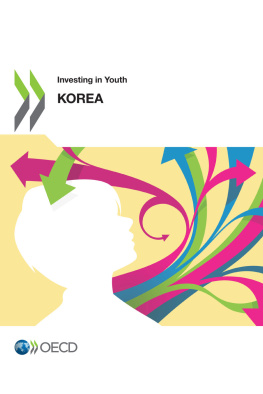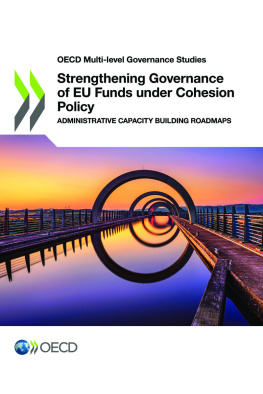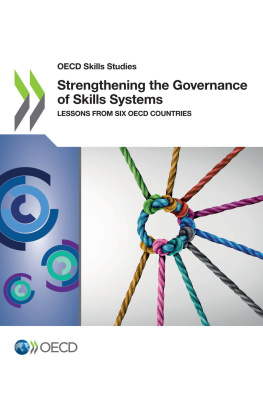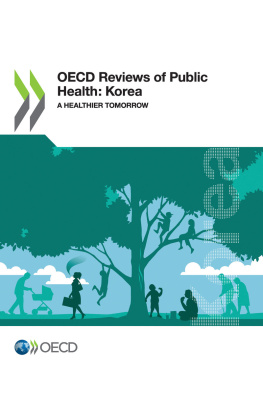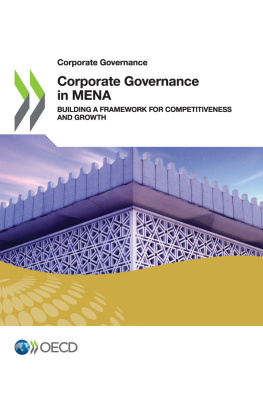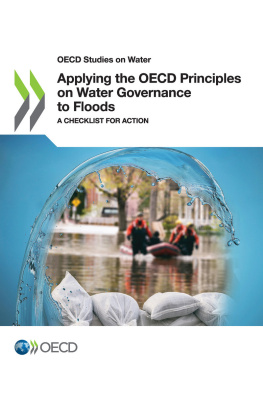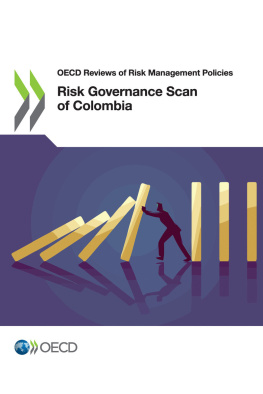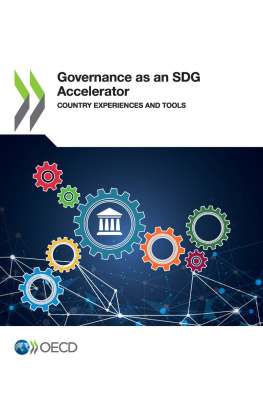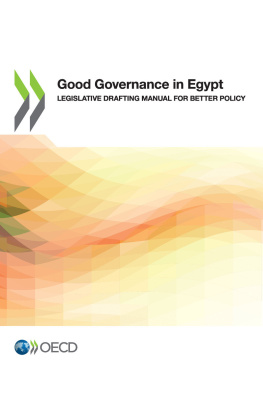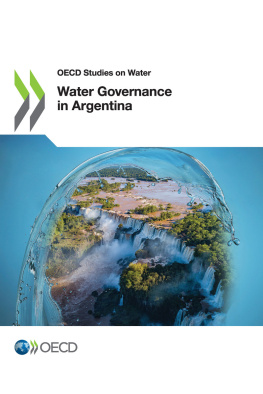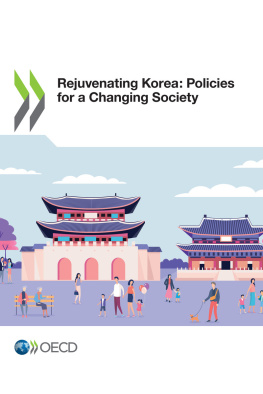OECD - The Governance of Land Use in Korea
Here you can read online OECD - The Governance of Land Use in Korea full text of the book (entire story) in english for free. Download pdf and epub, get meaning, cover and reviews about this ebook. year: 2019, publisher: OECD Publishing, genre: Business. Description of the work, (preface) as well as reviews are available. Best literature library LitArk.com created for fans of good reading and offers a wide selection of genres:
Romance novel
Science fiction
Adventure
Detective
Science
History
Home and family
Prose
Art
Politics
Computer
Non-fiction
Religion
Business
Children
Humor
Choose a favorite category and find really read worthwhile books. Enjoy immersion in the world of imagination, feel the emotions of the characters or learn something new for yourself, make an fascinating discovery.
The Governance of Land Use in Korea: summary, description and annotation
We offer to read an annotation, description, summary or preface (depends on what the author of the book "The Governance of Land Use in Korea" wrote himself). If you haven't found the necessary information about the book — write in the comments, we will try to find it.
OECD: author's other books
Who wrote The Governance of Land Use in Korea? Find out the surname, the name of the author of the book and a list of all author's works by series.
The Governance of Land Use in Korea — read online for free the complete book (whole text) full work
Below is the text of the book, divided by pages. System saving the place of the last page read, allows you to conveniently read the book "The Governance of Land Use in Korea" online for free, without having to search again every time where you left off. Put a bookmark, and you can go to the page where you finished reading at any time.
Font size:
Interval:
Bookmark:
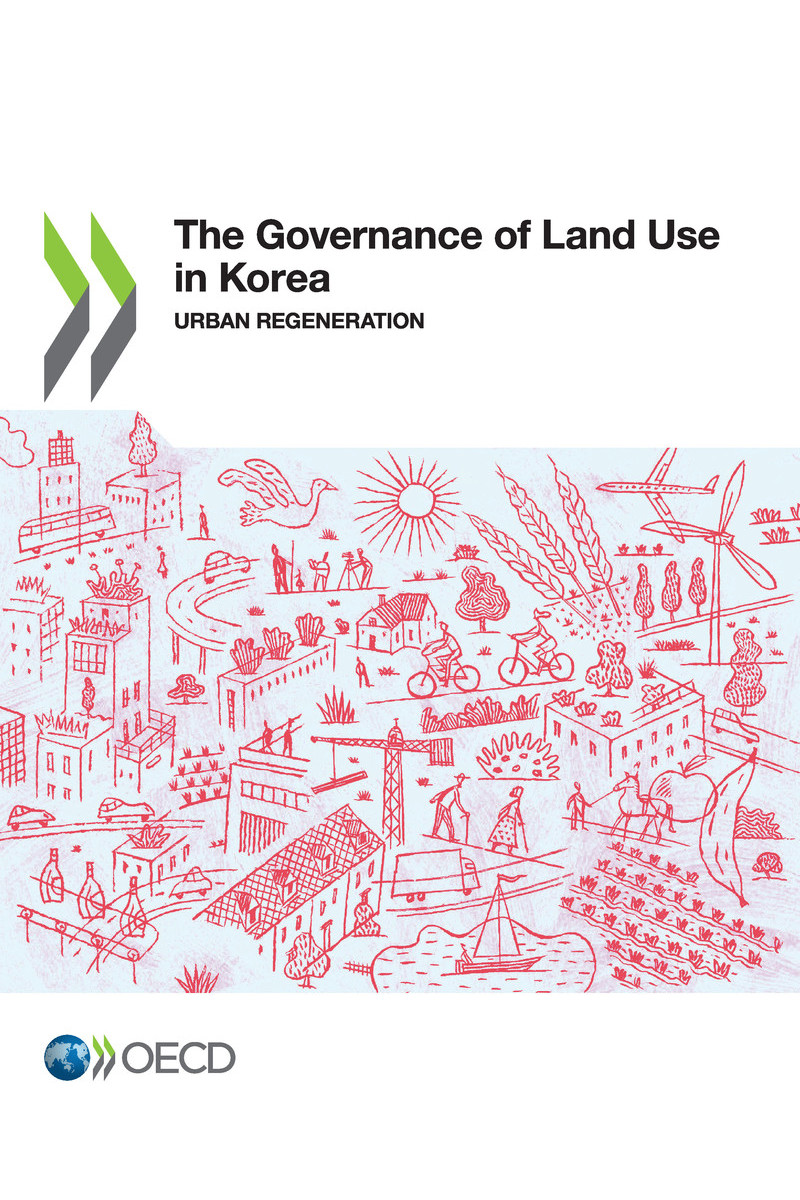
OECD (2019), The Governance of Land Use in Korea: Urban Regeneration , OECD Publishing, Paris, https://doi.org/10.1787/fae634b4-en .
How land is used affects a wide range of factors from day-to-day quality-of-life factors such as the availability of food and clean water and the length of daily commutes, to the long-term sustainability of urban and rural communities, including the possibility for climate change adaptation and mitigation. How governments regulate land use and address public and private investment, how competencies are allocated across levels of government, and how land use is taxed, are critical for all of these things and more. Korea has benefitted from comprehensive and well-structured, hierarchical land-use planning and urban regeneration frameworks. However, faced with a series of demographic and economic challenges, together with geographic factors and historical developments, it is time to re-evaluate land-use management and urban regeneration to leverage inclusive growth and boost competitiveness in Korean cities.
This report examines land-use trends, policies and practices in Korea, in particular in the city of Busan, through the lens of urban regeneration and citizen participation. Busan is the second largest city and the largest port city in Korea. Key economic sectors include shipbuilding and marine industries, machinery, steel, tourism, creative culture, bio-health and knowledge infrastructure services. Each of these sectors depends upon efficient land use and each has a direct relationship with urban regeneration and citizen engagement in the city. Busan was one of the first cities in Korea to pursue people-centred urban regeneration. All levels of government in Korea now use an array of engagement strategies and mechanisms in the agenda setting, formulation, implementation and evaluation of policies. This report argues that involving citizens in land-use planning and urban regeneration is essential to collect better quality information as a basis for plans, decisions and outcomes. It also argues that the Korean government has the opportunity to introduce more flexible and dynamic approaches to land use to strengthen the outcomes of its urban regeneration agenda.
The findings and recommendations of this report build on the discussions held with a diverse range of national and local policy makers, civil servants and researchers in Korea during an OECD study visit in June 2018. The report incorporates the experiences of other OECD countries where lessons have been drawn on land use, urban regeneration and citizen participation and may contribute to the discussion of these policy areas in other OECD member and non-member countries.
This is the 8 th report that is part of the OECD Regional Development Policy Committees programme of research on the governance of land use. It was approved by the Committee on 14 December 2018 under the cote CFE/RDPC/URB(2018)14]. The Committee seeks to enhance well-being standards from cities to rural areas, and to improve their contribution to national performance and more inclusive and resilient societies.
This report was prepared by the OECD Centre for Entrepreneurship, SMEs, Regions and Cities led by Lamia Kamal-Chaoui, Director, with the financial support of the Korean Ministry of Land, Infrastructure and Transport (MOLIT).
Special thanks are extended to Gyu-Hyeon Kim (Director General), Hyoung-suk Kim (Director General), Seongkyun Cho (Director), Seung-Hee Yi (Deputy Director), Byung-Chul Hwang (Assistant Director), Hyun-young Lee (Assistant Director), and Seong-yoon Moon (Interpreter) from MOLIT for their continuous and valuable support throughout the project.
The OECD Secretariat is grateful to the numerous representatives from the national and local authorities and institutions who shared their insights with the OECD team during the study mission to Korea: Hye-ryong Yu (Senior Deputy Director), Dong Hyuk Kim (Deputy Director) and Bong-gil Kim (Assistant Director) from MOLIT; Hyeong-Chan Gim (Director General), Ki-jeong Kim (Assistant Director), Hee-yun Choi (Assistant Director) and Young-Tae Byeon (Assistant Director) from Busan Metropolitan City; Sang Jo Kim (Research Fellow), Seong Soo Kim (Research Fellow), Dongkun Kim (Associate Research Fellow), Kyusang Kwon (Associate Research Fellow) and Jung-Eun Park (Associate Research Fellow) from the Korea Research Institute for Human Settlements (KRIHS); Min-Soo Kim (President), Sangkug Lee (Director), Youngwoo Hwang (Senior Researcher), Ji Young Yoon (Research Fellow) and Seoung Uk Han (Research Fellow) from Busan Development Institute (BDI); Zoosun Yoon (Research Fellow) from the Architecture & Urban Research Institute (AURI); Gong Soo Lim (Director), Ki Baek Song (Research Fellow), Soung Eun Park (Research Fellow), Ki Tae Kim (Team Head), Joung-Oh Park (Team Head), Seungryul Ma (Team Head) and Jung Hoon Park (Manager) from Korea Housing and Urban Guarantee Corporation (HUG); Young-Il Song (Senior Researcher), Ok-Yeon Kim (Research Fellow) and Dae Sik Choi (Research Fellow) from Korea Land and Housing Corporation (LH); Seok Hwan Lee (Professor) from Kyungsung University; Kwang-Suek Oh (Professor) from the Korea Maritime and Ocean University; Keong-ho Jeong (Director General) and Tae-Seok Oh (Team Head) from Urban Regeneration Center Busan (URCB); Soonyeon Hong (Creative Director) from Samjin Amook Co., Ltd, and local residents of the Gamcheon Culture Village in Busan.
This report was co-ordinated by Oscar Huerta Melchor. It was drafted by Baesung Kim, Debra Mountford and Oscar Huerta Melchor under the supervision of Aziza Akhmouch, Acting Head of the OECD Cities, Urban Policies and Sustainable Development Division and Soo-Jin Kim, Senior Policy Analyst of the OECD Cities, Urban Policies and Sustainable Development Division. This study draws on the valuable contributions from peer reviewer Dr Jaromr Hainc of the Prague Institute of Planning and Development (Czech Republic) and Dr Jin Hui Lee, associate research fellow at the Korea Research Institute for Human Settlements (KRIHS).
Font size:
Interval:
Bookmark:
Similar books «The Governance of Land Use in Korea»
Look at similar books to The Governance of Land Use in Korea. We have selected literature similar in name and meaning in the hope of providing readers with more options to find new, interesting, not yet read works.
Discussion, reviews of the book The Governance of Land Use in Korea and just readers' own opinions. Leave your comments, write what you think about the work, its meaning or the main characters. Specify what exactly you liked and what you didn't like, and why you think so.

